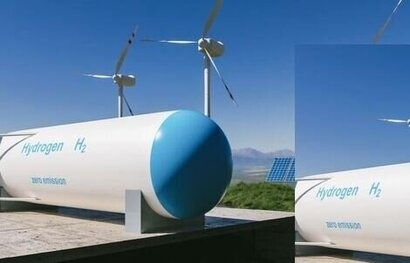
The new certification scheme arises from the demands of both hydrogen producers and off-takers for comprehensive standards adapted to the fast-expanding global hydrogen market. It provides transparency to foster investment in hydrogen production and commercialisation, paving the way to reach a global consensus concerning hydrogen standards and compliance.
Within the context of the energy transition, compliance with and assurance of sustainable new energy production, storage and distribution are unique challenges.
“Whilst gigawatts of renewable hydrogen production plants have been announced, many projects will need to provide more trust and show credibility to secure the required upfront financing to start plant construction” said Joerg Gmeinbauer, Global Vice President, Power & Utilities at Bureau Veritas. “At the same time, future hydrogen off-takers want to ensure that they will be able to meet their expectations related to ESG, Safety and GHG emissions. With the launch of this certification scheme, Bureau Veritas will provide a bridge, bringing transparency in both directions to all stakeholders.”
Bureau Veritas’ renewable hydrogen certification scheme will support deployed production capacities of renewable hydrogen, which is derived from water electrolysis using renewable energy electricity. It also enables developers of such assets to prove their project bankability to off-takers and investors in order to obtain funding at the early design stage. Bureau Veritas will perform an assessment of the renewable hydrogen production asset against ESG criteria, safety processes and greenhouse gas emissions. It will also assess the renewable energy that is used to power the electrolyser. A certificate will be issued if all requirements have been fulfilled.
Once the asset is in operation, Bureau Veritas will perform an onsite ‘as-built’ verification audit of the scheme’s criteria, resulting in a certificate for the operational renewable hydrogen production plant. The scope of the assessment covers the production of hydrogen through electrolysis, including onsite storage of hydrogen. It also covers process and occupational safety, and it defines comprehensive sustainability requirements such as environmental impacts and water sourcing. The carbon footprint calculation is based on a Life Cycle Assessment methodology that includes upstream emissions derived from the origins of the electricity and water desalination process being used.
A label to ensure that hydrogen is produced under safe and sustainable practices, and from renewable energy
The final step will be the issuing of the label after verification of the amount of hydrogen produced by the certified asset. The label stipulates that the asset must have a carbon footprint below 2 kg CO2 equivalent per kilogram of hydrogen. Quarterly verification of the hydrogen output and the renewable electricity input will be required to maintain the label.
Bureau Veritas is a key player in the energy industry, present at all stages of the renewable and alternative energy production chain. This certification scheme is in line with Bureau Veritas’ commitment, through its BV Green Line, to provide services and solutions that accelerate the energy transition, and are dedicated to sustainability, notably in resources and production. Looking forward, Bureau Veritas is planning to expand the programme later in 2023 to include green ammonia and low carbon hydrogen. By developing comprehensive expertise across the hydrogen value chain, Bureau Veritas is ready to globally support the decarbonisation of all sectors for the benefit of people and the planet.
For additional information:

